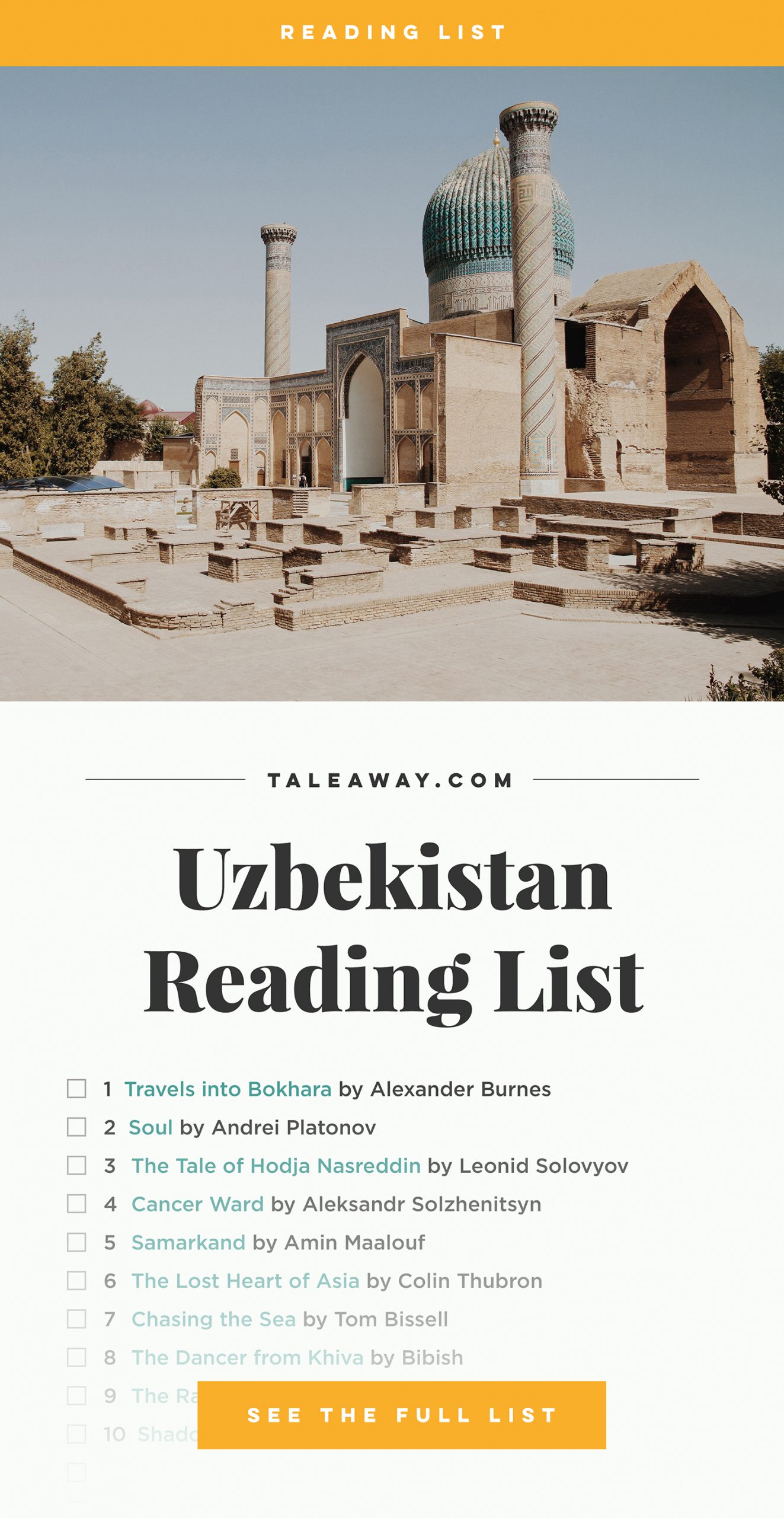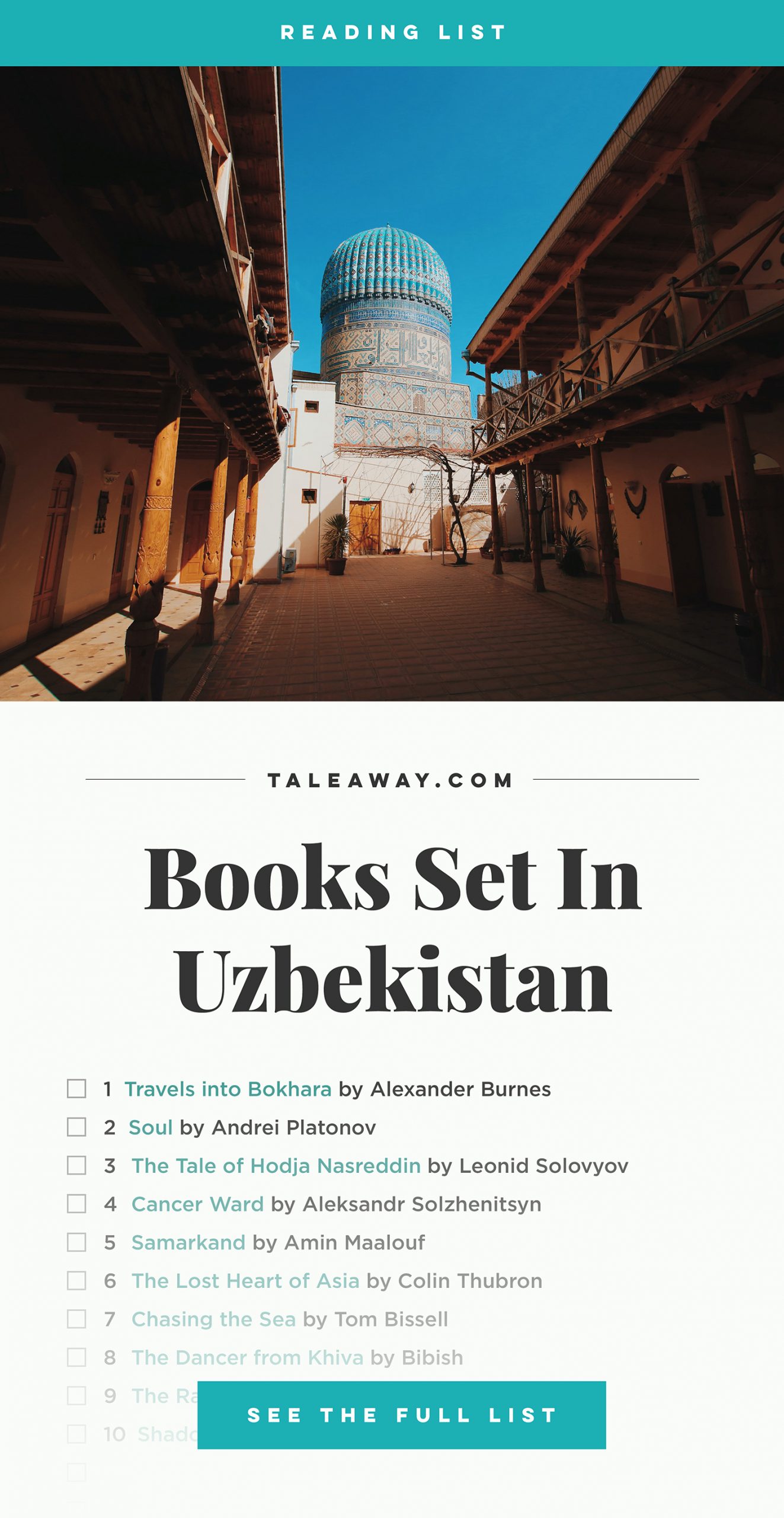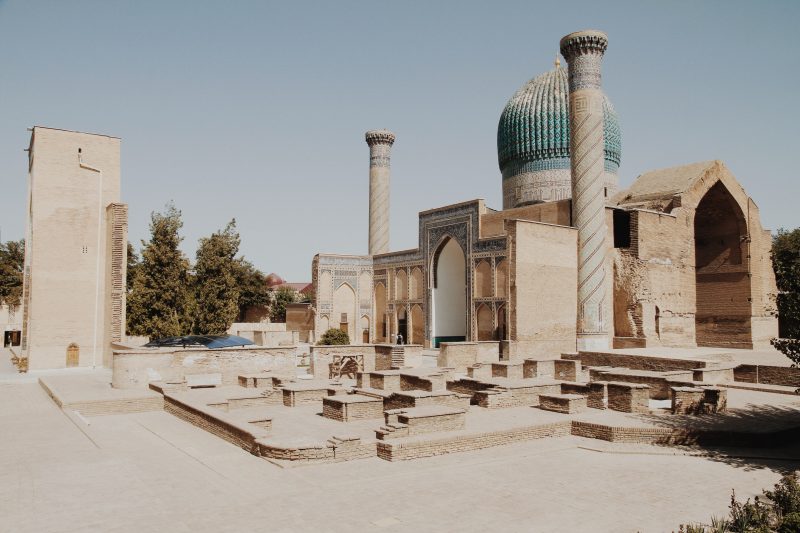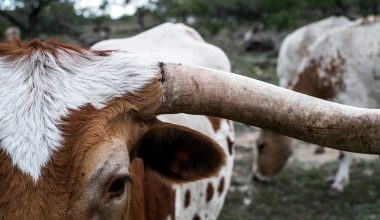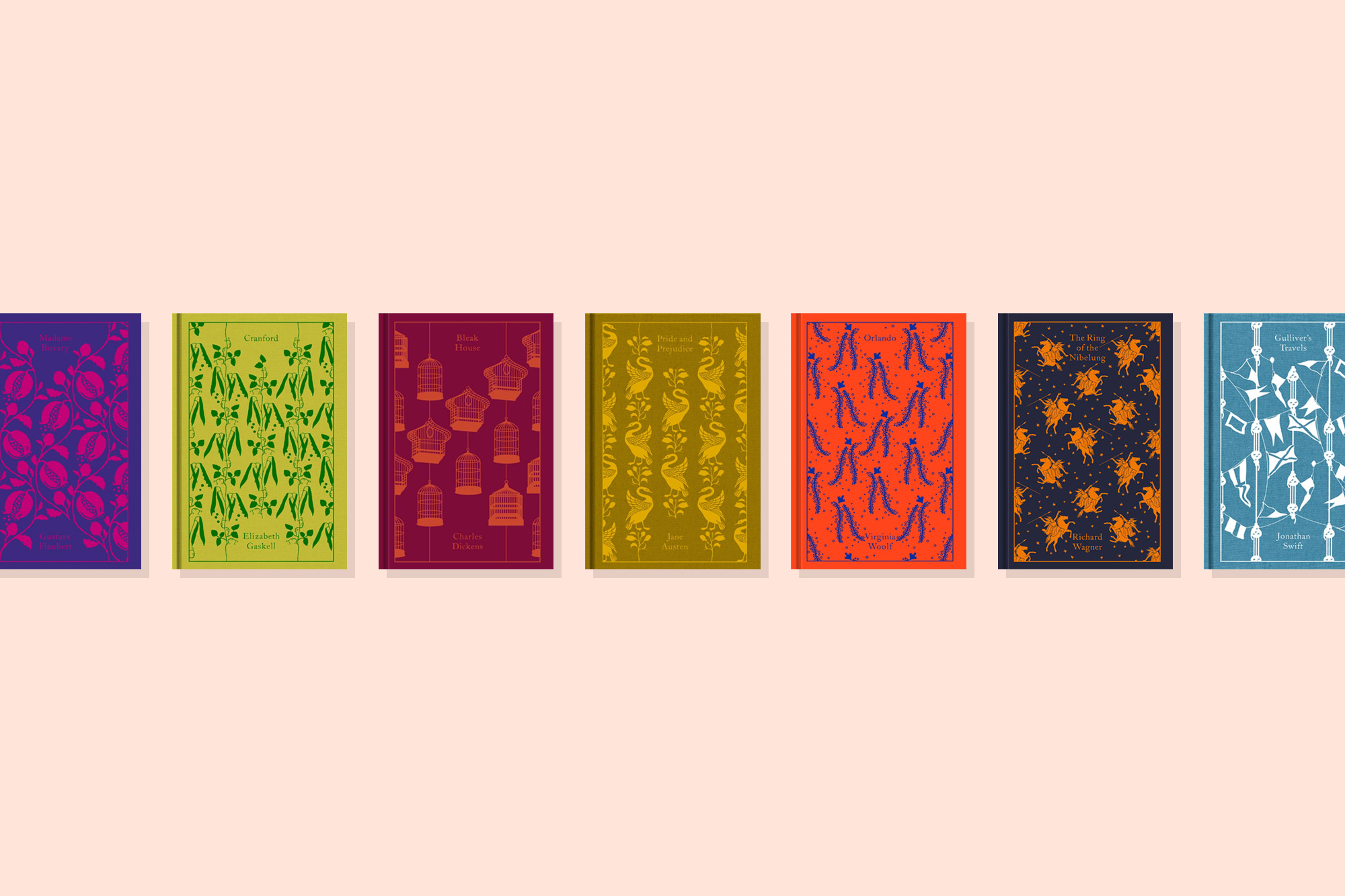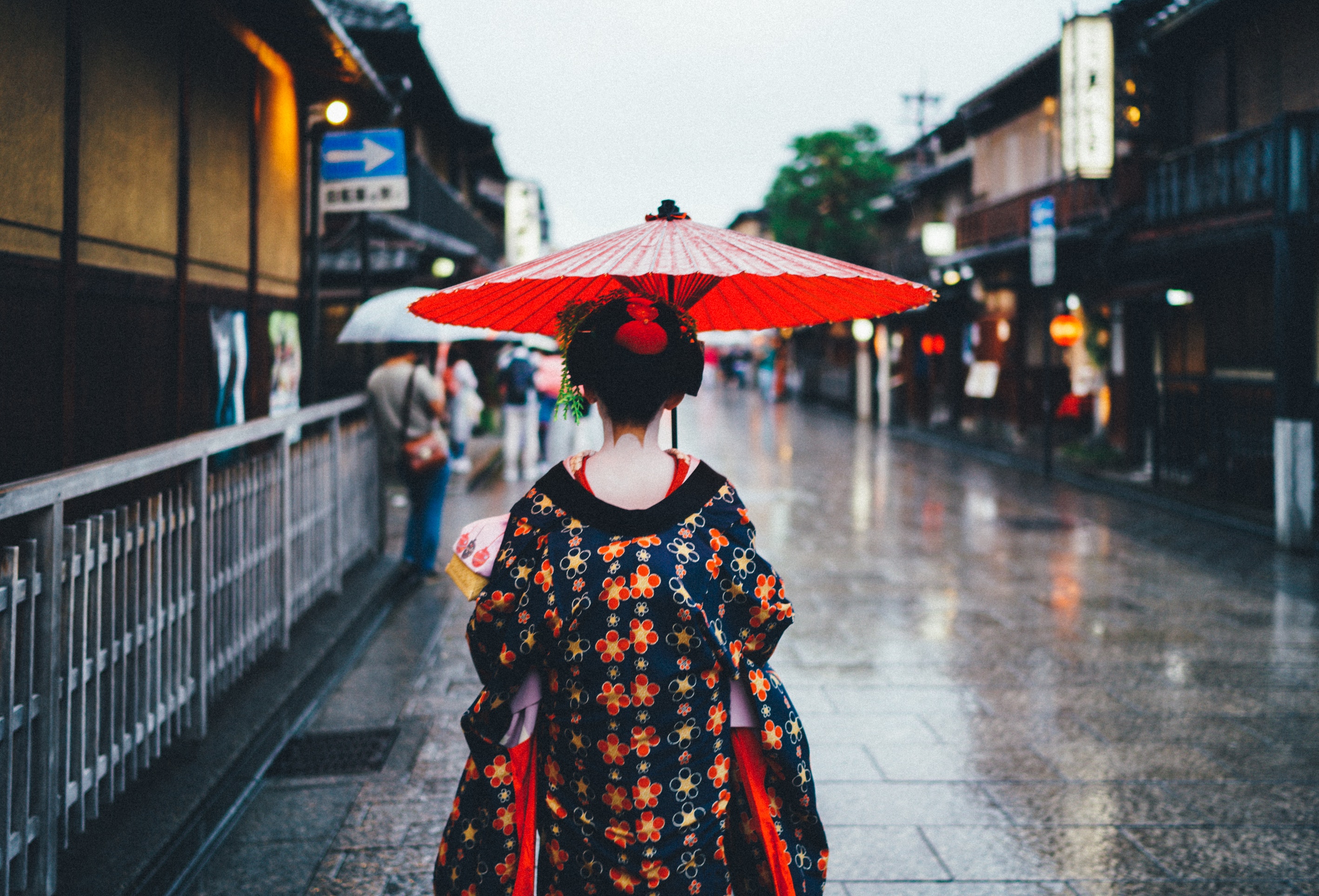This list of books set in Uzbekistan was inspired by my most recent read. A Carpet Ride to Khiva tells the tale of Christopher Aslan Alexander and his experience of starting a traditional weaving workshop in the city of Khiva. I had just ordered my own weaving loom the day before starting this memoir, so was enthralled with the descriptions of the craft and the culture of the region. I loved the novel so much, I devoured it in two days.
Please note: This post contains affiliate links. For more information, see my disclosures here.
Books Set In Uzbekistan: Introduction
Inspired by reading A Carpet Ride to Khiva, I wanted to expand my horizons and put together a reading list for Uzbekistan. This list includes many books set in Uzbekistan, both fiction and non-fiction alike, with a higher percentage of the latter than usual. Some titles are particularly focused on the country itself, while others are woven with tales from the wider region, which is part of the Silk Road.
One notable author included is Hamid Ismailov, an Uzbek journalist and author who was forced to flee Uzbekistan in 1992. He has lived in the United Kingdom ever since and though his works are all banned in Uzbekistan, many of them have been translated into English. Notable works below include The Railway (translated from Russian) and The Devils’ Dance (one of the few novels to be translated from Uzbek).
Books Set In Uzbekistan: The Shortlist
If you’re short on time and want to skip the longer list below, these are my picks for books set in Uzbekistan:
- The Dancer from Khiva by Bibish (I want to read this, but the prices are astronomical!)
- The Railway by Hamid Ismailov
- A Carpet Ride to Khiva by Christopher Aslan Alexander
- The Devils’ Dance by Hamid Ismailov
Want one of these Books Set in Uzbekistan for free?
Try Amazon Audible free for 30 days and get a free audiobook which you can play on loads of devices. Ideal for listening while gazing out the window. Best of all, you can cancel at any time and you can keep your books forever!
Books Set In Uzbekistan
1. Travels into Bokhara by Alexander Burnes, 1835
Sir Alexander Burnes was a British adventurer, spy and employee of the East India Company. Burnes kept a lively, detailed record of his trail-blazing journey across Afghanistan, Uzbekistan, the Indian sub-continent and beyond which he later published in three volumes to great acclaim, entitled Travels into Bokhara: A Voyage up the Indus to Lahore and a Journey to Cabool, Tartary and Persia.
See reviews
2. Soul by Andrei Platonov, 1934
Please note: this collection of short stories is only partly set in Uzbekistan.
The Soviet writer Andrey Platonov saw much of his work suppressed or censored in his lifetime. This volume gathers eight works that show Platonov at his tenderest, warmest, and subtlest. Among them are “The Return,” about an officer’s difficult homecoming at the end of World War II; “The River Potudan,” a moving account of a troubled marriage; and the title novella, the extraordinary tale of a young man unexpectedly transformed by his return to his Asian birthplace, where he finds his people deprived not only of food and dwelling, but of memory and speech.
See reviews
3. The Tale of Hodja Nasreddin by Leonid Solovyov, 1940
Returning to Bukhara after a prolonged exile, Hodja Nasreddin finds his family gone, his home destroyed, and his city in the grasp of corrupt and greedy rulers who have brought pain and suffering upon the common folk. But Hodja Nasreddin is not one to bow to oppression or abandon the downtrodden. Though he is armed only with his quick wits and his donkey, all the swords, walls, and dungeons in the land cannot stop him! Leaning on his own experiences and travels during the first half of the 20th century, Leonid Solovyov weaves the many stories and anecdotes about Hodja Nasreddin – a legendary folk character in the Middle East and Central Asia – into a masterful tale brimming with passionate love for life, liberty, and happiness.
See reviews
4. Cancer Ward by Aleksandr Solzhenitsyn, 1968
Cancer Ward examines the relationship of a group of people in the cancer ward of a provincial Soviet hospital in 1955, two years after Stalin’s death. We see them under normal circumstances, and also reexamined at the eleventh hour of illness. Together they represent a remarkable cross-section of contemporary Russian characters and attitudes. The experiences of the central character, Oleg Kostoglotov, closely reflect the author’s own: Solzhenitsyn himself became a patient in a cancer ward in the mid-1950s, on his release from a labor camp, and later recovered.
See reviews
5. Samarkand by Amin Maalouf, 1988
Accused of mocking the inviolate codes of Islam, the Persian poet and sage Omar Khayyam fortuitously finds sympathy with the very man who is to judge his alleged crimes. Recognising genuis, the judge decides to spare him and gives him instead a small, blank book, encouraging him to confine his thoughts to it alone. Thus begins the seamless blend of fact and fiction that is Samarkand. Vividly re-creating the history of the manuscript of the Rubaiyaat of Omar Khayyam, Amin Maalouf spans continents and centuries with breathtaking vision.
See reviews
6. The Lost Heart of Asia by Colin Thubron, 1994
A land of enormous proportions, countless secrets, and incredible history, Central Asia – the heart of the great Mongol empire of Tamerlane, site of the legendary Silk Route and scene of Stalin’s cruelest deportations – is a remote and fascinating region. Since the collapse of the Soviet Union and the emergence of newly independent republics, Central Asia – containing the magical cities of Bukhara and Samarkand, and terrain as diverse as the Kazakh steppes, the Karakum desert, and the Pamir mountains – has been in a constant state of transition. The Lost Heart of Asia takes readers into the very heart of this little visited, yet increasingly important region, delivering a rare and moving portrayal of a world in the midst of change.
See reviews
7. Chasing the Sea by Tom Bissell, 2003
In 1996, Tom Bissell went to Uzbekistan as a naive Peace Corps volunteer. Though he lasted only a few months before illness and personal crisis forced him home, Bissell found himself entranced by this remote land. Five years later he returned to explore the shrinking Aral Sea, destroyed by Soviet irrigation policies. Joining up with an exuberant translator named Rustam, Bissell slips more than once through the clutches of the Uzbek police as he makes his often wild way to the devastated sea. In Chasing the Sea, Bissell combines the story of his travels with a beguiling chronicle of Uzbekistan’s striking culture and long history of violent subjugation by despots from Jenghiz Khan to Joseph Stalin.
See reviews
8. The Dancer from Khiva by Bibish, 2005
An unflinchingly honest memoir, The Dancer from Khiva is a true story that offers remarkable insights into Central Asian culture through the harrowing experiences of a young girl. In a narrative that flows like a late-night confession, Bibish recounts her story. Born to an impoverished family in a deeply religious village in Uzbekistan, Bibish was named “Hadjarbibi” in honor of her grandfather’s hadj, or pilgrimage to Mecca. But the holy name did not protect her from being gang-raped at the age of eight and left for dead in the desert. Bibish’s tenacity helped her survive, but in the coming years, that same tough-spiritedness caused her to be beaten, victimized, and ostracized from her family and community.
See reviews
9. The Railway by Hamid Ismailov, 2006
Set mainly in Uzbekistan between 1900 and 1980, this compelling novel introduces to us the inhabitants of the small town of Gilas on the ancient Silk Route. Among those whose stories we hear are Mefody-Jurisprudence, the town’s alcoholic intellectual; Father Ioann, a Russian priest; Kara-Musayev the Younger, the chief of police; and Umarali-Moneybags, the old moneylender. Their colorful lives offer a unique and comic picture of a little-known land populated by outgoing Mullahs, incoming Bolsheviks, and a plethora of Uzbeks, Russians, Persians, Jews, Koreans, Tatars, and Gypsies. At the heart of both the town and the novel stands the railway station – a source of income and influence, and a connection to the greater world beyond the town.
See reviews
10. Shadow of the Silk Road by Colin Thubron, 2007
Shadow of the Silk Road records a journey along the greatest land route on earth. Out of the heart of China into the mountains of Central Asia, across northern Afghanistan and the plains of Iran and into Kurdish Turkey, Colin Thubron covers some seven thousand miles in eight months. Making his way by local bus, truck, car, donkey cart and camel, he travels from the tomb of the Yellow Emperor, the mythic progenitor of the Chinese people, to the ancient port of Antioc – in perhaps the most difficult and ambitious journey he has undertaken in forty years of travel.
See reviews
11. The New Woman in Uzbekistan by Marianne Kamp, 2008
This groundbreaking work in women’s history explores the lives of Uzbek women, in their own voices and words, before and after the Russian Revolution of 1917. Drawing upon their oral histories and writings, Marianne Kamp reexamines the Soviet Hujum, the 1927 campaign in Soviet Central Asia to encourage mass unveiling as a path to social and intellectual “liberation.” This engaging examination of changing Uzbek ideas about women in the early twentieth century reveals the complexities of a volatile time: why some Uzbek women chose to unveil, why many were forcibly unveiled, why a campaign for unveiling triggered massive violence against women, and how the national memory of this pivotal event remains contested today.
See reviews
12. A Carpet Ride to Khiva by Christopher Aslan Alexander, 2010
The Silk Road conjures images of the exotic and the unknown. Most travellers simply pass along it. Brit Chris Alexander chose to live there. Ostensibly writing a guidebook, Alexander found life at the heart of the glittering madrassahs, mosques and minarets of the walled city of Khiva – a remote desert oasis in Uzbekistan – immensely alluring, and stayed. Accompanied by a large green parrot, a ginger cat and his adoptive Uzbek family, Alexander recounts his efforts to rediscover the lost art of traditional weaving and dyeing, and the process establishing a self-sufficient carpet workshop, employing local women and disabled people to train as apprentices.
See reviews
13. The Devils’ Dance by Hamid Ismailov, 2012
On New Year’s Eve 1938, the writer Abdulla Qodiriy is taken from his home by the Soviet secret police and thrown into a Tashkent prison. There, to distract himself from the physical and psychological torment of beatings and mindless interrogations, he attempts to mentally reconstruct the novel he was writing at the time of his arrest – based on the tragic life of the Uzbek poet-queen Oyxon, married to three khans in succession, and living as Abdulla now does, with the threat of execution hanging over her.
See reviews
14. Pleased To Be Otherwise by Gina Ochsner, 2013
Timi, a boy in Uzbekistan, navigates a strange world of camel breeding, half-understood Islamic doctrine, Mexican soap operas dubbed into Uzbek, and the legacy of widespread pollution from the Soviet era, all while dreaming of doing death-defying stunts on his rickety motorcycle. Lonely and accident-prone, Timi befriends an American humanitarian worker in a struggling marriage, tries to avoid his father’s frequent rages, and plans out the astonishing motorcycle jump that will give meaning to his life. A brilliant, comic look at an almost unknown country and its fascinating contradictions.
See reviews
15. Restless Valley by Philip Shishkin, 2013
It sounds like the stuff of a fiction thriller: two revolutions, a massacre of unarmed civilians, a civil war, a drug-smuggling highway, brazen corruption schemes, contract hits, and larger-than-life characters who may be villains, or heroes, or possibly both. Yet this book is not a work of fiction. It is instead a gripping, firsthand account of Central Asia’s unfolding history from 2005 to the present. Philip Shishkin, a prize-winning journalist with extensive on-the-ground experience in the tumultuous region above Afghanistan’s northern border, focuses mainly on Kyrgyzstan and Uzbekistan.
See reviews
16. Sovietistan by Erika Fatland, 2014
Turkmenistan, Kazakhstan, Tajikistan, Kyrgyzstan, and Uzbekistan became free of the Soviet Union in 1991. But though they are new to modern statehood, this is a region rich in ancient history, culture, and landscapes unlike anywhere else in the world. Traveling alone, Erika Fatland is a true adventurer in every sense. In Sovietistan, she takes the reader on a compassionate and insightful journey to explore how their Soviet heritage has influenced these countries, with governments experimenting with both democracy and dictatorships.
See reviews
17. The Silk Roads: A New History of the World by Peter Frankopan, 2015
For centuries, fame and fortune were to be found in the west – in the New World of the Americas. Today, it is the east which calls out to those in search of riches and adventure. Sweeping right across Central Asia and deep into China and India, a region that once took centre stage is again rising to dominate global politics, commerce and culture. A major reassessment of world history, The Silk Roads is a dazzling exploration of the forces that have driven the rise and fall of empires, determined the flow of ideas and goods and are now heralding a new dawn in international affairs.
See reviews
18. Ways to Hide in Winter by Sarah St. Vincent, 2018
In a remote corner of Pennsylvania’s Blue Ridge Mountains, a woman befriends a fugitive from Uzbekistan, setting in motion this suspenseful, atmospheric, politically-charged debut. After a freak car accident left her widowed, Kathleen has retreated to Pennsylvania’s Blue Ridge Mountains, where she works in an isolated corner of the state park. There she meets a stranger who seems to be hiding from the authorities in his native Uzbekistan. As the violent secrets of their pasts unfold, the difference between good and evil proves more complicated than we might think and a surprising final twist casts Kathleen in a new light altogether.
See reviews
What do you think of these books set in Uzbekistan?
Have you visited before? Have you read any books set in Uzbekistan? Are there any notable titles I’ve missed here? I’d love to hear your thoughts on these books set in Uzbekistan in the comments below!
Looking for more reading ideas?
If you’re looking for more books set in Asia, check out these popular posts:
- Books Set In China and Hong Kong: Chinese Novels
- Books Set In India: Indian Novels
- Books Set In Indonesia: Indonesian Novels
- Books Set In Korea: South Korean Novels
- Books Set In Turkey: Turkish Novels
Special Offers from Tale Away
These are just a few things I love using for reading and travel, which have special deals that I want to pass on to you! 🙌
- Try Amazon Prime free for 30 days and get access to the Prime Reading library and free shipping on thousands of books. This was responsible for a significant increase in my home library!
- Receive free AirBNB travel credit when you sign up for a new account. I love staying at AirBNB’s for an authentic and local experience when traveling.
- Try Amazon Audible free for 30 days and get a free audiobook which you can play on loads of devices. Ideal for listening while gazing out the window. Best of all, you can cancel at any time and you can keep your books forever!
